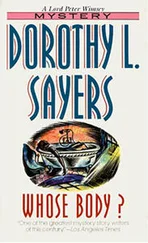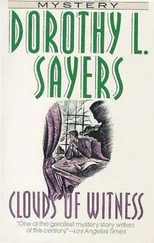What do I want to see done? A great many things are possible? The B.B.C. could do so much. Concerts of French music, little dramas of French history, talks about French literature or performances of French plays, a running commentary from time to time upon French life under war-time conditions, an exchange of views between — shall we say? — French and English housewives, or what not? And in the papers, articles on these subjects, photographs, stories — que veux tu? I do not ask for a heavy educational propaganda — that would defeat its own purpose — nor for the wagging of flags, such as we suffered from too much in theh last war. I ask only for a little direction to be given to our thoughts and sympathies. I find more pictures, more headlines, more news, more gossip, devoted to other countries — to Finland, to Russia, to America, to Italy, to the various neutrals,a nd above all to Germany — than to our ally in arms. And I cannot think this to be wise or right.
We say we stand for liberty and democracy — is there any nation that has so good a right to speak on these subjects as France? We are so concerned for the good treatment of political minorities and foreign colonies — cannot France offer us a varied and important experience in such matters? We wish to preserve our Mediterranean civilisation — through whom, if not through France, did we inherit that civilisation? We are proud of our mongrel race and our noble mixed language double-rooted in Saxon and Latin — have we forgotten that France is one-half of that language and the more intellectual half of that language?
And besides all this, ought we not to try very hard to make the spirit of our own people known to the people of France? Do we suppose ourselves so natually amiable as to capture their affections without the politeness of a trifling exertion? I fear we are too complacent.
Here, my dear Harriet, is a task for you writers. You have the imagination which the politicians so singularly lack. You must write, you must speak, you must besiege the Press and the wireless; you must even endeavour to impress your opinion upon the Ministry of Instruction and Morale, and if they are "astonished" and inform you that the spirit of Allied understanding is excellent and needs no fostering, you must nevertheless persevere. Keep in your mind that it is this very complacency which makes the incidence of divorce so high in the British home, and that an ally, like a wife, must be won daily with kind and modest attentions. You yourself, mon enfant, are satisfied with your husband — I am happy to know it; but let me assure you that Peter would have been as complacent as the average Briton had I not taken his education in hand from the beginning and impressed upon him that a partnership cannot flourish without a continutal effort of intelligent planting and pruning and the assiduous rooting-up of the chickweed of indolence.
With this fine horticultural metaphor, I will leave the subject to your consideration. Believe me, my dear child, your very affectionate uncle,
PAUL AUSTIN DELAGARDIE
18. From Lord Peter Wimsey, somewhere abroad, to Harriet, his wife, at Talboys. (Extract.)
… You are a writer — there is something you must tell people, but it is difficult to express. You must find the words.
Tell them, this is a battle of a new kind, and it is they who have to fight it, and they must do it themselves and alone. They must not continually ask for leadership — they must lead themselves. This is a war against submission to leadership, and we might easily win it in the field and yet lose it in our own country.
I have seen the eyes of the men who ask for leadership, and they are the eyes of slaves. The new kind of leaders are not like the old, and the common people are not protected from them as they were from us. In our time their ignorance was a protection, but now they have eaten knowledge and are left naked. I have no time to explain myself properly, but you will understand.
It's not enough to rouse up the Government to do this and that. You must rouse the people. You must make them understand that their salvation is in themselves and in each separate man and woman among them. If it's only a local committee or amateur theatricals or the avoiding being run over in the black-out, the important thing is each man's personal responsibility. They must not look to the State for guidance — they must learn to guide the State. Somehow you must contrive to thell them this. It is the only thing that matters.
I can't very well tell you just how and why this conviction has been forced upon me, but I have never felt more certain of anything. To be certain of something is rather an achievement for me, isn't it? Well, there it is — I am perfectly certain for once…
© The Spectator












